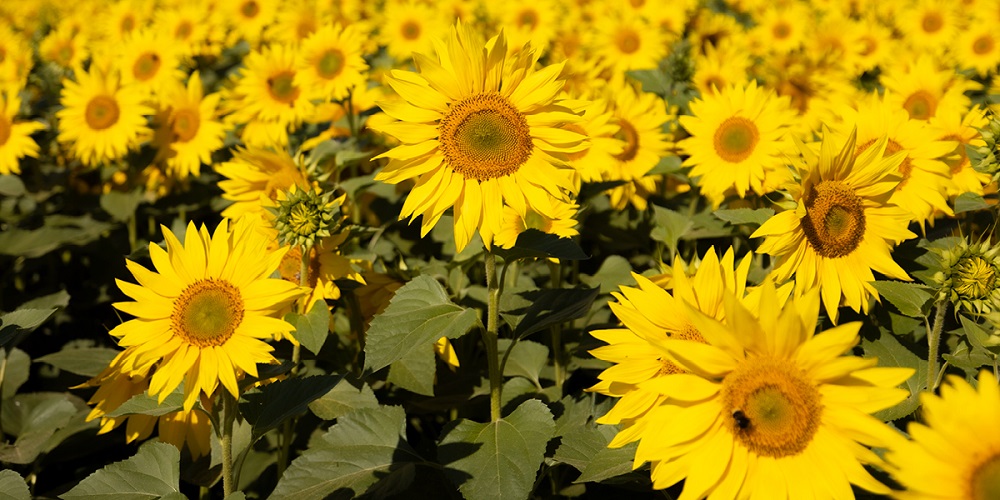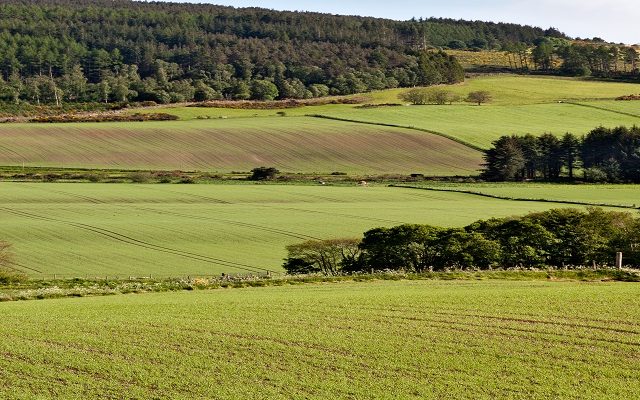Top tips on making seasonal diversifications a success
Offering visitors new and exciting reasons to return throughout the year can be key to generating repeat business on an estate or farm. In our latest issue of Land Business magazine we explore how four different businesses are embracing seasonal opportunities to increase revenue streams
Tapping into the marketing and commercial opportunities offered by the different seasons is an endeavour at which Highclere Castle excels.
Most visitors to the iconic Hampshire venue come when the Castle and grounds are open between July and September, but the team works hard to ensure its offer extends through the calendar, creatively staging one- off events and private tours which reflect the different times of year.
For romantics, for example, there is a champagne and canape reception on Valentine’s Day, Easter sees the gardens and woodland host an Easter egg trail, and Christmas is a chance to provide a variety of festive- themed activities.
Country houses traditionally lost money for much of the year, then tried to recoup that during the period when they were open, but that’s a bad business model,’ says Lady Carnarvon. ‘Envelopes containing bills arrive in the post every single day, so it makes commercial sense to extend the opening period.
‘There’s no secret pot of gold at the end of the rainbow, however. I wake up every morning thinking: we need more money coming in than going out. Estates are all looking for repeat business and sticky’ customers.’With visitors’ expectations much higher than a few decades ago, it’s not enough to merely open the gates, though.‘You have to understand what they want, how you can make them feel welcome and how you can make them feel happy,’ explains Lady Carnarvon. ‘It’s about providing an experience. We want visitors to come to a place that is full of laughter and life, have a wonderful day, then tell 10 friends about it.’
Rarely is the sense of an experience more evident at the real Downton Abbey’ than at Christmas, with tours, teas, carols, book talks and shopping among the attractions. ‘It’s such a special time and I adore it, but our preparations for it begin in January. We work hard to create a community and people really feel part of something here at this magical time of year.
‘We give a lot of thought to how we can incorporate the different seasons into events in a considered, reflective way. Every season is beautiful in its own way and we’re also a farm, of course, so we’re constantly in tune with the annual cycle.’
Different themes give the team the opportunity to reflect the world, past and present, in diverse ways, and, although this calls for innovation and imagination, they’re ever mindful of the need to stay true to the heritage of this special place. ‘Part of what those who come here want is reassurance that it will be the same and, at its heart, Highclere remains fundamentally the same,’ points out Lady Carnarvon.
‘It’s a privilege and a responsibility to live here and we love sharing the joy of it at different times of year, whether that’s with cosy fires and mulled wine at Christmas, the brilliant hillside colours in autumn or when the spring bulbs are in flower.’

Pumpkin patch diversifications
‘People are looking for an unforgettable experience’, agrees Oliver Lukies, a rural chartered surveyor in the land management team in Strutt & Parker’s Chelmsford office.
A Halloween Experience and Pumpkin Patch is now the busiest time of year on his family’s farm Cammas Hall Farm near Bishop’s Stortford on the Hertfordshire-Essex border.
The business introduced the enterprise eight years ago, having run a pioneering pick-your-own fruit venture since 1966. Their offering also includes a farmshop, foot-golf, a maize maze and a range of events throughout the year such as Easter trails, bluebell walks in April, two beer festivals and firework nights in November.
Typically running from the end of September, Halloween accounts for a significant number of the 100,000-plus visitors who come through the gate annually.
Oliver’s father, Jonathan, grows tens of thousands of pumpkins and squash each year, spanning more than 70 varieties. They’re laid out in a ‘patch’ from where people choose them, while enjoying associated attractions ranging from animatronics and actors to music and ‘wicked walkways’.
For the past two years, there has been a giant volcano made of pumpkins (pumpcano), serving as an iconic centrepiece which emitted a red glow as darkness fell. ‘It’s the whole package people are buying into.’
Merely repeating what you’ve previously done isn’t enough, however, so constantly refreshing the offer is vital, says Oliver. ‘You have to be original. This is where the whole team’s imagination is so important – we very much try to encourage the staff to share ideas and suggestions.’

Sunflower-based farm diversification
It was while staying in a friend’s villa in Tuscany that Charlie and Joe Harvey had their idea for a seasonal farm enterprise. Inspired by the sight of sunflowers, the couple began wondering if they could create a similarly impressive sight on their 1,300-acre Wiltshire farm.
‘I was aware that summer holidays can be a stressful period for parents and that trying to fill those eight weeks can be a challenge,’ recalls Charlie, who is the Farming Team Administrator in the Salisbury office of Strutt & Parker. ‘You need to take out a small mortgage to have a family day out at a theme park, so we concluded pick-your-own sunflowers could be an affordable, fun option.’
Drawing on her marketing and sales knowledge, Charlie pitched the price point at £6 for an adult, with children under 14 free. The parents get to take five stalks home as part of the admission fee.
‘We didn’t know if it would flop or be a success, but it completely took off and this year we doubled the number of visitors.’
Salisbury PYO Sunflowers opened on 4 August in 2023, with the offering including a picnic area, a pirate-ship sand-pit, wooden play tractor and face-painters.
Drilled in April, sunflowers are a robust, relatively easy crop to grow and one that’s great for birds and other biodiversity. The 2.4-acre field’s location beside the busy A30, popular with those heading to Stonehenge and Salisbury Cathedral was also critical.
‘We get lots of drive-throughs because the flowers are so visible. It’s got this European-Mediterranean feel and passers-by are blown away by the sight. Our first year was a sea of yellow, but in 2023 we drilled five varieties, so also had oranges, reds and chocolate-brown flowers.’
While this visual extravaganza means the endeavour ‘largely markets itself’, there is a huge word-of-mouth element and social media is a key awareness- driver, with local TV and radio also keen to highlight it.
‘It does involve some juggling, given it coincides with the arable harvest and we have the kids at home, but it’s a relatively short, finite period,’ says Charlie. ‘I was a little apprehensive about having the public on the farm as we’ve never done it before. But we’ve been able to raise awareness of British farming, as well as raise over £1,000 to support cancer care at Salisbury District Hospital.’

Branching out into Christmas trees
The interaction with the public is one of the aspects that Willie Robertson and his family enjoy most about their seasonal enterprise near Edinburgh East Lothian Christmas Trees at Beanston.
‘We’re a sociable family and like meeting people, so we enjoy having them come to the farm, admire the views and have a walk round. Everyone has a smile on their face at Christmas.’
Willie’s first foray into this sector was as a 14-year-old in 1984 when he planted some spruce trees an idea hatched to utilise a small patch of unproductive land, encouraged by a gamekeeper who was a fan of their potential to provide game cover.
‘By the time I was 21 and had just left college, they were 4-5ft high and I found I could sell them on a pick- your-own basis for about £1/ft,’ he says.
Nowadays, the Robertsons sell 1,500 trees a year between late November and Christmas about 75% of which are Nordmann fir, with the remainder Norway spruce. Customers can either pick their own or choose from a selection laid on the lawn in front of the house.
For trees up to 12ft high, prices are typically £8/ft for Nordmann fir and £5/ft for Norway spruce, allowing the enterprise to turnover about £60,000 – roughly equivalent to the farm’s oilseed rape crop.
‘It’s a nice additional bolt-on,’ says Willie. ‘You don’t have to wait for your money, either it’s there at the end of each day.’
Although a tree can take nine years to reach 6ft, the periods in the year when tasks such as planting or thinning are required tend to be quieter elsewhere on the 650-acre holding, so it dovetails nicely with the arable, DIY horse livery and storage operations.
‘It’s great to see trees growing on the farm and very satisfying to know that our customers can range from an elderly lady wanting a 2ft tree to put in a small flat to a museum seeking a 20-footer for a huge room,’ says Willie.
‘People say coming to our farm is one of their family’s Christmas traditions and it’s lovely to be a part of that.’

Grant support for farm diversification
There is currently a window of opportunity for farmers and landowners in England wanting to diversify to take advantage of the £110m Rural England Prosperity Fund (REPF).
‘The REPF provides capital grants to support new and existing rural businesses to develop products and facilities that will be of wider benefit to the local economy,’ says Marie Charles, Senior Rural Research and Business consultant, based in Strutt & Parker’s Stamford office.
‘The sort of projects which may be eligible include the conversion of farm buildings to other business uses, particularly those which support the tourism industry. Funding is also available to support new and improved community infrastructure and services.’
A challenge for potential applicants is that the scheme is being delivered by local authorities, rather than centrally. While the decentralised approach allows for localised decision-making, it also means that the scheme is being rolled out differently by every local authority.
Strutt & Parker is monitoring the rollout of the REPF across the country, so please get in touch if you want to know what grants are on offer in your region. Unfortunately, there is currently no grant funding for diversification projects available in Scotland. The Welsh Government is also yet to confirm if its Agricultural Diversification Scheme will be open in 2024.
If you would like to know more about grants for diversification, contact Marie Charles.
Download the Autumn/Winter 2023 edition of Land Business magazine.






